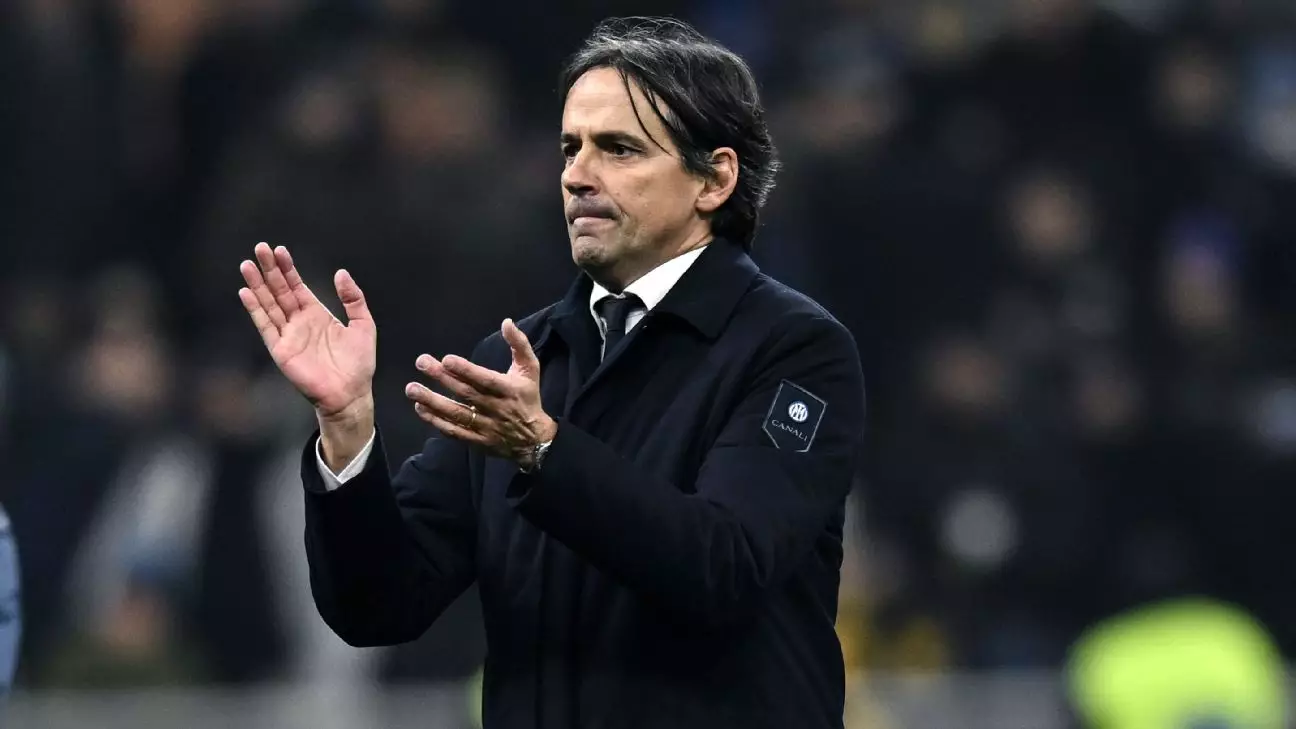In the high-stakes world of Serie A, few narratives are as compelling as that of Inter Milan’s recent resurgence under the watchful eye of manager Simone Inzaghi. Following an underwhelming performance against Fiorentina, which concluded in a disheartening 3-0 defeat, the team’s quick rebound to claim a 2-1 victory in their subsequent meeting has sparked renewed optimism among fans and analysts alike. This victory is not merely a footnote in the season; it serves as a testament to the team’s mental fortitude and ability to learn from prior mistakes.
Inzaghi’s leadership style plays an instrumental role in shaping the mindset of the players. By ensuring that the squad remains composed and focused, even in the face of criticism, he has fostered a culture of resilience. His strategic emphasis on mental toughness was palpably evident as Inter approached the rematch with a blend of caution and aggression—qualities that were previously lacking in their earlier defeat. This triumph illustrates a vital lesson in sports: the ability to adapt and overcome setbacks is just as crucial as technical skill on the field.
The victory against Fiorentina was not the product of sheer chance; it was a calculated response to the challenges faced just days earlier. Inzaghi noted the need for his players to reflect on their previous encounters and adjust their tactics accordingly. He remarked, “We were faster, better at second balls, and more balanced,” indicating that the players had internalized lessons from their loss.
This ability to evolve demonstrates a maturity that is often seen in championship-winning teams. The seasoned manager acknowledged the support of fans, underscoring the symbiotic relationship between the team and its supporters. Inzaghi’s ability to channel the emotional energy of the fanbase positively contributes to the players’ performance. It is this collective spirit that arguably played a pivotal role in Inter’s comeback.
Managing expectations and calming the players’ nerves was also on Inzaghi’s agenda. His decision to allow the team to remain with their families rather than undertake a typical retreat after a loss speaks volumes about his coaching philosophy. Recognizing the need for a mental reset, he encouraged the players to disconnect from external pressures, empowering them to focus on their collective goal. This blend of tactical adjustment and psychological support contributed significantly to their success.
Despite the euphoria surrounding Inter’s victory, the match was not without its contentious moments. Fiorentina’s manager, Raffaele Palladino, expressed his frustration over the circumstances surrounding Inter’s first goal, questioning the referee’s decision-making. His assertion that the ball had entirely gone out of play before Inter capitalized on the momentum for a corner highlights a growing concern in modern football regarding the effectiveness of officiating.
While Palladino opted to refrain from directly criticizing the referees, his irritation reveals an undercurrent of dissatisfaction that is prevalent in competitive sports. The implications of such incidents on team morale and performance cannot be underestimated. Coaches often find themselves balancing their rage over perceived injustices with the need to maintain focus on the task at hand. It serves as a reminder that success not only hinges on the prowess of the players but also on the varied influences of external factors.
A Bright Horizon for Inter Milan
Following this victory, Inter Milan stands just a point adrift of league leaders Napoli, with aspirations to secure the top spot as they continue their campaign in Serie A. The stakes are high, and the journey demands relentless effort and commitment. Inzaghi’s recognition that “we must continue our journey” encapsulates the vision shared by both the players and staff—a commitment to excellence that champions cannot afford to underestimate.
Moving forward, the lessons gleaned from both victories and defeats will shape Inter’s strategy as they navigate the challenges ahead. It is evident that the psychological aspects of the game—resilience in the face of adversity, collective support, and tactical awareness—create a robust foundation for sporting success. As Inter Milan aims for glory in domestic and European competitions, their recent performance serves not only as a reflection of their capabilities but as an inspiration for future endeavors.

Leave a Reply